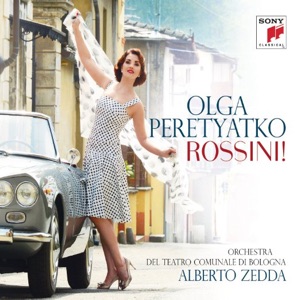
Nicola Lischi
For her third solo recording, Olga Peretyatko summons the two men who launched her career less than a decade ago
Andrea Andermann, the producer who brought you Tosca in the Settings and at the Times of Tosca, Traviata in Paris, and Rigoletto in Mantova, is preparing for a telecast of La Cenerentola.
It was while attending a performance of Fédora in Naples in 1885 that eighteen year-old Umberto Giordano fell in love with Sardou’s then immensely popular play; the protagonist was none other than Sarah Bernhardt, the creator of the title role. He immediately asked the French dramatist to sell him the rights, a request Sardou did…
Cubes and Macbeth seem to have been a successful pairing in the recent Regietheater. Graham Vick’s production of Macbeth at the Teatro alla Scala in the 1997/98 season had become famous, or infamous, for centering its spirit and energies on a big cube dominating both sets and singers. David Pountney exploited the same idea of…
If I had been handed Clari’s score without being told the name of the composer, I might have thought it was a lost Rossini opera, albeit a minor one. I would have probably assigned it to the early period of Rossini’s career, because it shows more similarities with works like La pietra del paragone and…
“Le pene d’amore non uccisero la Callas” reads the rather sensational headline: “The pains of love did not kill Callas.” The actual story in La Stampa is more sober, telling of an investigative study into the causes of the diva’s vocal decline and eventual death.
Incredible, but true, I Puritani had not been performed in Great Britain since 1887 when Glyndebourne decided to stage it in 1960 with the main intention to showcase Joan Sutherland, who had been catapulted to international superstardom one year earlier in the legendary Lucia di Lammermoor at Covent Garden. Furthermore, Vittorio Gui, who had already…
Very few things intrigue me as much as analyzing belcanto operas, comparing their several versions and examining the composers’ second thoughts, modifications and revisions that, willingly or unwillingly, they made to their scores. I was already salivating when I heard that the Teatro Comunale di Bologna was going to perform Vincenzo Bellini’s I Puritani in…
Our Own Ercole Farnese discovered and translated this interview in La Stampa with Jonas Kaufmann, in which the tenor discusses his “his idolatrous success with ladies and gay men, four fifths of the opera-goers.”
In 1890 Cavalleria rusticana had taken the whole world by storm and in the next decade or so, hordes of composers, willing or unwillingly, jumped on the Verismo bandwagon. La navarraise (1894) is generally considered Jules Massenet’s homage to the genre, and for a long time the two works were often performed together. Emma Calvé,…
There is no peace for Verdi in Parma. As a second production of its Verdi Festival the Teatro Regio presented I vespri siciliani on October 10, starring Giacomo Prestia as Procida, Leo Nucci as Monforte, and the lovebirds Daniela Dessì and Fabio Armiliato as Elena and Arrigo.
“So, how is this new Pavarotti?” or, “This young tenor, what’s his name, I saw him on the morning show, is he any good?” When people who have never set foot inside an opera house—and know Maria Callas chiefly as the woman Aristotle Onassis dumped for Jacqueline Kennedy—start asking me such questions, then I…
When Hans Von Bülow joked that Rienzi was Meyerbeer’s best opera, he was not very far off the mark. In fact, Rienzi, der Letze der Tribunen, Wagner’s third opera, has all the traits of a typical “grand opéra”: it is divided in five acts, features a historical character or situation, makes large use of the…
During rehearsals for the upcoming Rigoletto from Mantova, Zubin Mehta attacks Sandro Bondi, Berlusconi’s Minister of Culture. Mehta is angry, and by his own admission, he becomes “cattivo”, nasty, when speaking about the financial cuts of the Berlusconi government in the opera houses.




